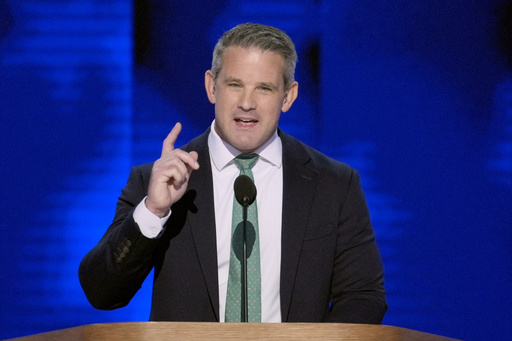This event marked the largest assembly of the “Principles First Summit,” which sought to broaden its appeal beyond Trump supporters by welcoming independents and centrist Democrats who share a mutual commitment to democracy and opposition to authoritarianism.
During the summit, Heath Mayo, a Yale-educated lawyer and founder of Principles First, urged attendees not to capitulate or conform. “Now is the time to stand firm and prepare for a challenging battle,” he insisted, highlighting the need for perseverance among politically disillusioned conservatives.
Despite engaging in three days of discussions, the 1,200 participants left without a unified strategy for diminishing Trump’s influence over the conservative movement and American identity. There was considerable debate about whether to work within the Republican Party, transition to the Democratic Party, or pursue an alternative path entirely.
“It’s reassuring to know you’re not alone and you’re not losing your mind,” remarked Jeff Oppenheim, a retired Army colonel from Austin, Texas. He emphasized the challenges of transforming feelings of camaraderie into actionable steps within a political system dominated by two major parties.
The gathering featured notable figures like entrepreneur Mark Cuban, who received a warm reception upon taking the stage but quickly clarified that he would not run for the presidency. He criticized the Democratic Party’s effectiveness, arguing that they struggle to articulate a persuasive message against Trump.
Cuban praised Trump’s marketing abilities, stating, “I’m not here to undermine him,” acknowledging that the former president successfully connected with voters by offering perceived solutions.
Attendees from Trump’s camp derided the summit, dubbing it a gathering of “RINOs,” or “Republicans in name only.” White House communications director Steven Cheung labeled the event as “the Cuck Convention,” using derogatory language that was prevalent during election campaigns.
Trump currently maintains a tighter grip over the Republican Party in his second term, having garnered significant support across Congress and loyalty from a substantial portion of the party’s base. However, some of his remaining adversaries within the ranks argue that there are still opportunities to challenge his dominance.
Former Congressman Adam Kinzinger, considered a frequent target by Trump, noted the slim majority Republicans hold in the House and suggested that many lawmakers are worried due to voter frustrations regarding decisions made by billionaire advisor Elon Musk, including substantial workforce reductions and limited government services.
Kinzinger encouraged critics to amplify their concerns in public forums, stating that confrontational town hall meetings can provoke significant reactions from politicians.
Julie Spilsbury, a councilmember from Mesa, Arizona, aims to retain her position in the Republican Party. Like many conference attendees, she cast her vote for Kamala Harris in the presidential election while openly supporting the Democratic nominee, citing character and integrity as fundamental reasons. She is currently facing a recall effort from Trump supporters in her locality.
Asa Hutchinson, a former governor of Arkansas who ran for the Republican nomination in 2024, and Colorado’s centrist Democrat Jared Polis provided cautious evaluations of Trump’s early weeks in the role. Their remarks received lukewarm responses, especially when Hutchinson expressed his belief in Trump’s intention to abide by court rulings regarding various executive actions.
In contrast, thunderous applause erupted for police officers who defended the U.S. Capitol during the January 6, 2021, riots, as they voiced strong opinions about Trump and the pardoning of individuals involved in the attack.
“We have to channel our outrage and maintain our anger while putting aside fear,” asserted Michael Fanone, a former police officer who endured an assault by the rioters. When asked if he would engage in dialogue with Trump, Fanone dismissed the idea, stating the president is unlikely to accept being wrong.
Tensions escalated when Fanone and his fellow officers encountered Enrique Tarrio, leader of the Proud Boys, the day after the summit. The following day, organizers received a bomb threat that referenced Fanone and other targets, leading to a swift evacuation of the venue by law enforcement, which concluded without incident. Organizers attributed the threat to Tarrio, who denied responsibility on social media.
Maria Stephan, a progressive participant at her first Principles First event, remarked that the evacuation reinforced the themes of empowerment discussed throughout the summit.
In contrast, Rich Logis from Broward County, Florida, who distanced himself from the MAGA movement, expressed cautious optimism, suggesting that many will reconsider their support for Trump if his policies continue to negatively impact Americans. “Everyone has to find their own breaking point,” Logis explained, emphasizing the importance of engaging in conversations with those grappling with their political stance.




